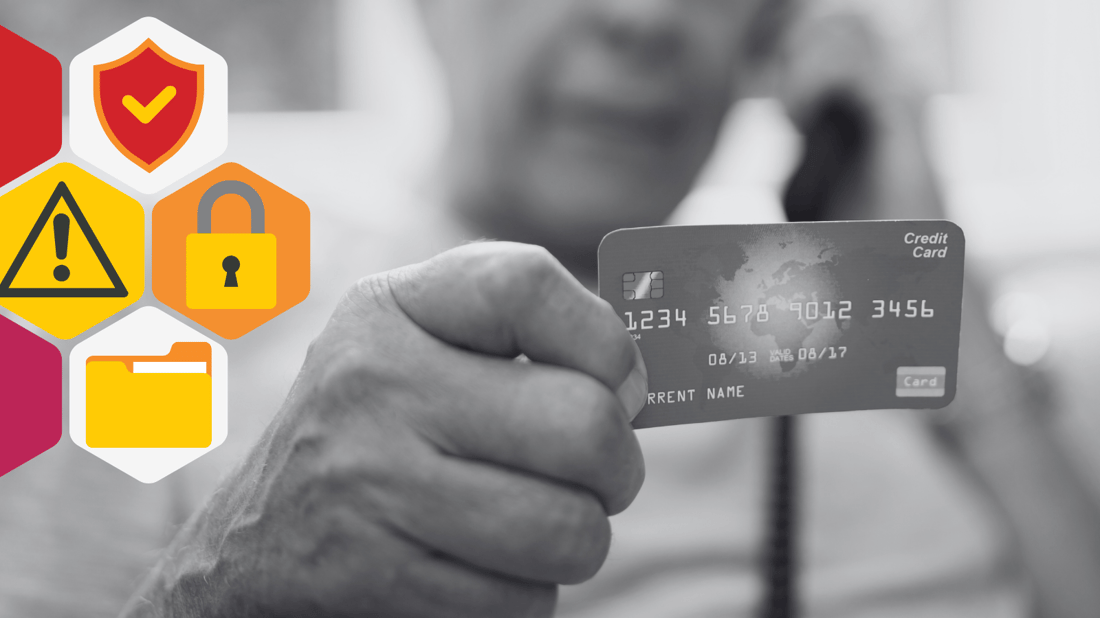How to be the Safest Cyber House on the Block
We believe that being safe at work starts by being safe at home.
Here at Cybermaniacs, we believe that cybersecurity education should extend beyond the workplace to encompass the entire family. Our goal is to create happy, cyber-secure humans, ensuring safety both at work and at home.
To be frank, this ever accelerating digital age is hard to keep up with, even for those of us plugged into comprehensive cyber awareness programs at work. This is even more daunting for seniors who may not be as familiar with the latest tech developments. By empowering your employees to help their loved ones stay secure, we leverage a highly effective strategy—supporting others can often enhance one's own understanding and adherence to safety practices.
Did you know? Research suggests that people are more diligent about others' well-being, such as giving pets medication on time, than they are about their own care. (It’s true. We’re guilty of this as well!) What I think is interesting is harnessing this psychological connection for cybersecurity efforts, encouraging employees to protect their families, which in turn reinforces their own security habits.
Integrating cybersecurity for seniors into your training programs can be part of broader campaigns, like October’s Cybersecurity Awareness Month. Family packs and educational resources tailored for seniors can help bridge the knowledge gap, making cybersecurity a collective effort. By addressing the unique needs of our elderly loved ones, we not only safeguard them but also foster a culture of comprehensive cybersecurity awareness.
Incorporating these practices ensures that cybersecurity becomes a shared responsibility, deeply ingrained in our daily lives. This holistic approach helps create a safer digital environment for everyone, nurturing a community of vigilant and informed individuals.
Keeping a Watchful Eye on Scams
According to AARP, phishing emails and tech support scams are the most common tactics used against seniors. Scammers often pose as legitimate companies, claiming there are issues with their accounts, asking for remote access, or demanding payment for unnecessary services.

How You Can Help:
Passing Down Password Wisdom
Easy, avoidable passwords are a cybercriminal's dream. Help seniors create strong, unique passwords for their accounts.
How You Can Help:
Privacy Settings: The Gatekeepers of Personal Information
Privacy settings control who can see and use personal information on social media and other platforms. NOTE: It’s okay to tell them that they don’t have to respond to *every* post.

How You Can Help:
Regular Monitoring: Staying Vigilant
Regularly monitoring online accounts is crucial in detecting any suspicious activity early on.
How You Can Help:
Empowering Seniors with Knowledge
Our goal is to empower seniors, making them feel confident and secure online. By equipping them with the right tools and knowledge, they can enjoy the benefits of the digital world without fear of cyber threats.
Here’s a quick recap of how we can help the seniors in our lives stay safe online:

In this article, we've explored various ways to keep seniors and aging family members safe in the digital age. As you consider implementing these strategies, it's essential to think about the content and resources you provide. Using a content provider or security awareness company, like ours, can significantly ease the distribution of these assets and make them more accessible for seniors.
You can't do it all alone, and that's where we come in. Let us help you ensure that your loved ones are well-protected. Get in touch with us, and we'll show you how to seamlessly integrate these resources into your family's cybersecurity plan. Together, we can create a safer digital environment for everyone.
.png?width=1100&height=619&name=_Impacts%20of%20Cyber%20Awareness%20(1).png)
We believe that being safe at work starts by being safe at home.
5 min read

Imagine your organization's cyber defenses as a well-trained emergency response team. (Work with us here). Just like a strong immune system in a...
5 min read

Psst: CISOs and experts, this is one of our beginner-oriented articles! If you're looking for more advanced material, we recommend a dive into the...
3 min read
Subscribe to our newsletters for the latest news and insights.
Stay updated with best practices to enhance your workforce.
Get the latest on strategic risk for Executives and Managers.
.png?width=1100&height=619&name=_Cyber-Saviness%20(1).png)